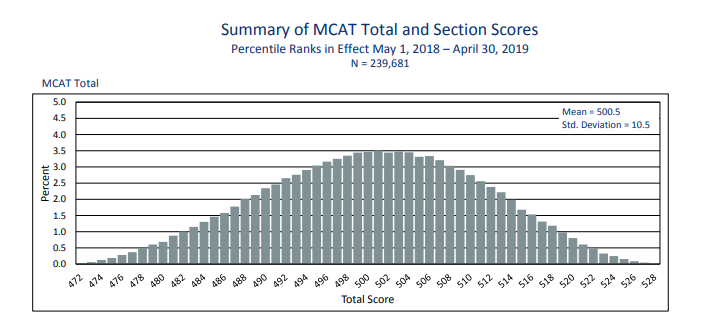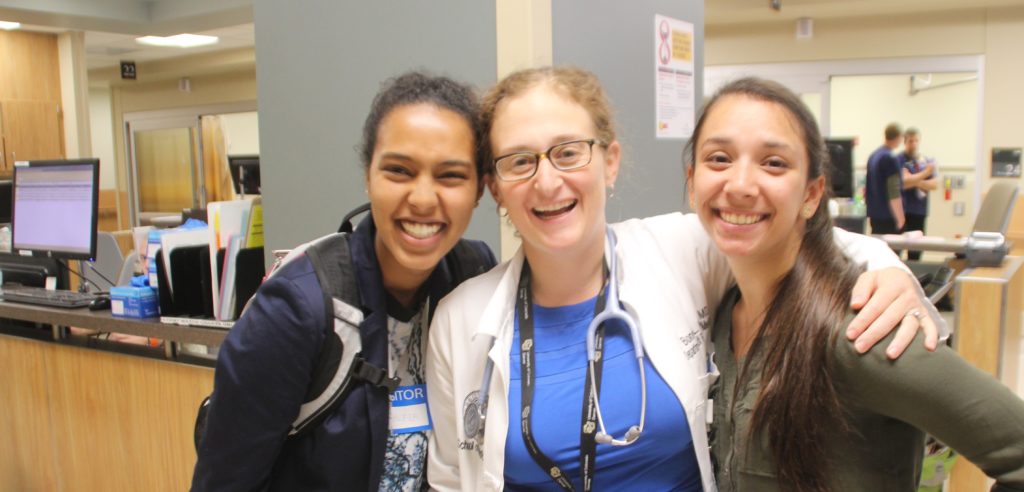[vc_row][vc_column][vc_column_text]By: Alessandra Santiago
With fewer than 3% of all applicants accepted in most of the nation’s top-tier medical schools, the competitiveness of the pool of medical school applicants cannot be understated. Compare the number of applications during the 2017-2018 cycle to the number of matriculations, and you see just how competitive the process can be: the Association of American Medical Colleges reported receiving 51,680 applications, while a mere 21,388 students—40% of applicants—matriculated into U.S. programs in 2017.
To beat these odds, the typical advice dispensed by Admissions Boards across the United States to enterprising pre-med students often boils down to this: be the strongest possible applicant you can be in advance of the application cycle.
These same aspiring applicants know what this advice actually means: scoring well on high-pressure standardized tests; maintaining a competitively high GPA throughout (and after) the undergraduate years; and navigating the overwhelming waters of extracurricular activities, research experience, required and recommended coursework, and volunteer experience.
It is unsurprising, then, that this boilerplate advice can feel unsatisfyingly vague and unpointed.
So, let us unpack this advice for you, prospective applicant. In our “Med School Tips and Tricks” article series, we will walk you through the ins and outs of the pre-application period, providing curated advice at every step for every type of applicant—from pre-med undergrads to non-traditional career-changers—straight from the Admissions Board at CU Denver.
How to Be a Strong Applicant?
To begin, we’ll provide our working definition of “being a strong applicant”. According to CU Denver Senior Admissions Professional Karina Goodwin, your strength as an applicant rests on three attributes: the ability to demonstrate your academic soundness as an applicant, showing how you apply your learning in and out of the classroom, and having informative experiences in patient care.
“We’re looking for people who can apply what they’ve been learning in the classroom to outside experiences, whether that be research, or clinical experience, or diversity and inclusion [experiences], or any way that they can get a patient perspective,” said Director Goodwin.
| Your strength as an applicant rests on three attributes: the ability to demonstrate your academic soundness as an applicant, showing how you apply your learning in and out of the classroom, and having informative experiences in patient care. |
“Our MCAT and GPA [scores] are very high, but we also have just the average… Yes, we’re looking to make sure applicants are academically sound, but we take it a step deeper. We look at what experiences they’ve done, what attributes they possess.”

The graph above is from the Association of American Medical Colleges.
“We really pride ourselves in that we use a very holistic review process when we are looking at applicants. We’re essentially looking for authenticity. We are looking for the entire package, not just the perfect applicant on paper,” said Goodwin.
So, let us depart from the notion of “cookie cutter” advice for pre-meds. In the next three articles of the series, we will break down what it means to be academically sound, to apply your learning in and out of the classroom, and to gain patient perspectives from us here at the CU Denver Medical School.
A few words before we dive in…
While we receive thousands of applications in a year, our Admissions Officers agree that there is no formulaic “perfect” applicant. We have found that the strongest applications come from students who have formulated an answer to the following question as early as possible in their medical career: Why do you want to become a doctor?
Customizing your academic, applied learning, and patient perspective experiences to reflect your unique reasons for pursuing medicine is what makes applicants stand out.
At CU Denver, we find that service-oriented leaders are the ones who demonstrate exemplary ability to convey their passion for service in the medical field. We have an eye out identify those students with a level of commitment to and understanding of what it means to be of service as a healthcare provider.

This type of self-understanding and professional exposure to medicine comes only with time, experience, and self-reflection. Our Admissions Board looks to find applicants who have completed that ever-critical component of self-reflection on how an applicant’s experiences in healthcare have impacted them and their journey into medicine.
So, think about how you aim to serve as an M.D., D.O., D.D.S., P.A., or N.P. as early as possible. Why do you choose to serve as a healthcare provider, and what is it about medicine that calls to your heart? Having answers to these questions can make the difference.
To read more about how the individual components of the AMCAS medical school application can demonstrate your desire to serve or other queries about applying to med schools, please see the other articles in our “Med School Tips and Tricks” series.
Continue reading to the next article “Making The Grade: Your Academics For Med School”
Medical Admissions Series | University of Colorado
Want More Medical School Application Hacks? Sign Up Below to Receive Our Pre-health Newsletter!
Contact Form
